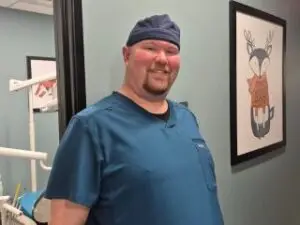 When it comes to finding a job in America these days, the going can sometimes be rough. Many industries aren’t hiring at all, or they are only taking on temporary and contract workers, and others are working their current employees harder than ever. But as discouraging as those things might be to the general population, they don’t ring as true in the health care industry. Health care has become one of the fastest growing fields in the nation, and even the world. Whether you are interested in becoming a physician, a certified medical assistant, a pharmacy technician, or plan to pursue a career in medical billing and coding, you are likely to find opportunities in many places around the U.S.1 So while you look for that job, or consider getting a degree in a health care profession, here are some things you should keep in mind:
When it comes to finding a job in America these days, the going can sometimes be rough. Many industries aren’t hiring at all, or they are only taking on temporary and contract workers, and others are working their current employees harder than ever. But as discouraging as those things might be to the general population, they don’t ring as true in the health care industry. Health care has become one of the fastest growing fields in the nation, and even the world. Whether you are interested in becoming a physician, a certified medical assistant, a pharmacy technician, or plan to pursue a career in medical billing and coding, you are likely to find opportunities in many places around the U.S.1 So while you look for that job, or consider getting a degree in a health care profession, here are some things you should keep in mind:
Projected job growth
While many industries go up and down at the whim of larger economic forces, health care provides a relatively stable place where professionals can lay down roots and grow their careers. It’s not completely recession-proof, but it does weather economic downturns better than most industries.2 Along with that stability comes strong growth projections for most of the jobs in the health care industry. Health care jobs already account for more than 10 percent of total employment in the U.S.,3 making health care one of the largest sectors in the economy for hiring. The United States Bureau of Labor Statistics predicts that number will continue to increase between now and 2020, with several positions, including medical assistants and pharmacy technicians, expected to see employment gains of more than 30 percent in that time.4 The two primary reasons for those optimistic predictions – an aging baby boomer population and the implementation of the Affordable Care Act – are also factors that don’t show any signs of abating, and should indicate that future growth in the health care profession will live up to those lofty expectations.
Getting hired in health care
Once you’ve established that you want to pursue a career in health care, it’s time to start the job search process. There are a number of things you’ll need to keep in mind as you go out looking for work, including:
- Education. Many health care jobs require post-graduate degrees and years of internships. Others may require an associate’s degree or the completion of a specific training program. If you are interested in getting into the health care profession, assess your current academic standing and decide what you need to do in order to make your career dreams a reality.
- Resume. Having a clear, concise, well-organized resume that doesn’t have any spelling or grammatical errors is crucial to your job search. Write out a first draft of your resume, then show it to anyone you know who might be able to offer worthwhile guidance on how to make it better. Consult other people in your prospective field and ask them for tips. And be sure to consider how every detail you include will reflect upon you.
- Networking. Be on the lookout for networking opportunities wherever you go – someone you meet on the bus might just be the person who can get you an interview for the perfect job. And, as Forbes.com notes, about 80 percent of all job openings aren’t advertised.5 That means developing contacts within your desired industry is imperative if you want to have as many options as possible.
- Professionalism. Whether you’re in an interview or you’ve just started your new job, the way you carry yourself will have as much to do with your success as anything else about you. Make sure you are prepared, well-dressed, confident and open to learning new things.
Building your career
Once you’ve gotten the education you need to pursue your health care career, and taken the necessary steps to get that first job, it’s time to think about how you can turn that opportunity into a lifelong career. Many of the attributes and skills you used in those first two steps will also come in handy on the job. For instance, the curiosity and willingness to expand your horizons that helped you in school will also be important as you learn the processes, procedures and technical details of your new job. The tenacity and dedication you showed in finding this opportunity in the first place can also serve you well. If you demonstrate an exceptional work ethic, your employer is likely to notice and eventually allow you to take on a greater role and more responsibilities. And those developments usually come with financial incentives. Everything you do – from school to job searching to your career – is another step in your journey toward personal and professional fulfillment. Just be sure to have a long-term outlook, and understand that you’re constantly building toward something better. 1 “Current Employment Statistics Analysis,” U.S. Bureau of Labor Statistics, Dec. 6, 2013. http://bls.gov/web/empsit/ceshighlights.pdf 2 Gandel, Cathie; Sterne, Hilary, “9 Recession-Proof Careers,” Reader’s Digest, March 2009. http://www.rd.com/advice/work-career/9-recessionproof-careers/ 3 Staff Reporter, “Health Care Accounts for 10.7 Percent of Total U.S. Employment: Report,” IBTimes.com, Feb. 21, 2011. http://www.ibtimes.com/healthcare-accounts-107-percent-total-us-employment-report-269053 4 “Occupational Outlook Handbook – Health Care Occupations,” U.S. Bureau of Labor Statistics, March 29, 2012. http://www.bls.gov/ooh/healthcare/ 5 Smith, Jacquelyn, “7 Things You Probably Didn’t Know About Your Job Search,” Forbes.com, April 17, 2013. http://www.forbes.com/sites/jacquelynsmith/2013/04/17/7-things-you-probably-didnt-know-about-your-job-search/



